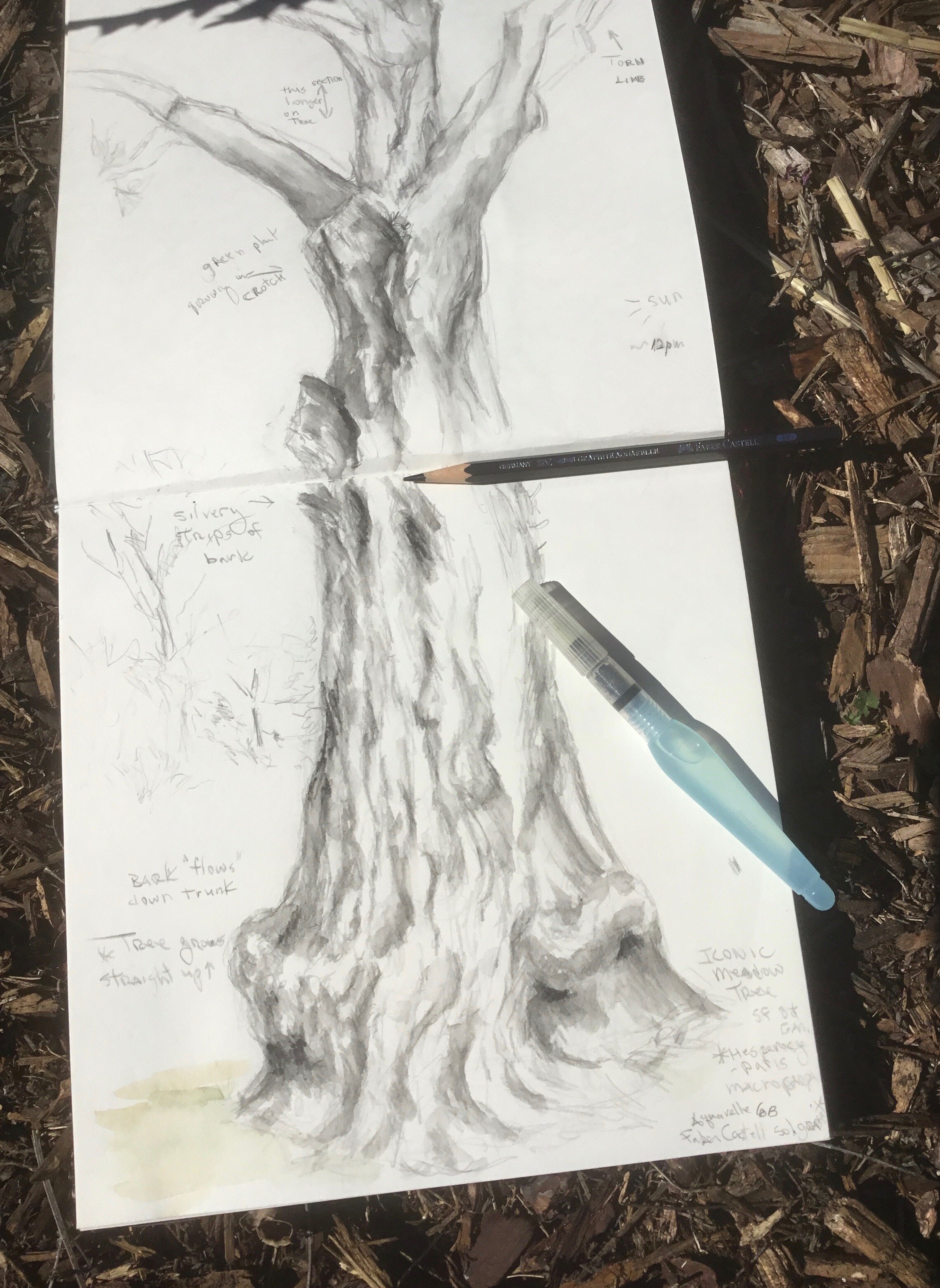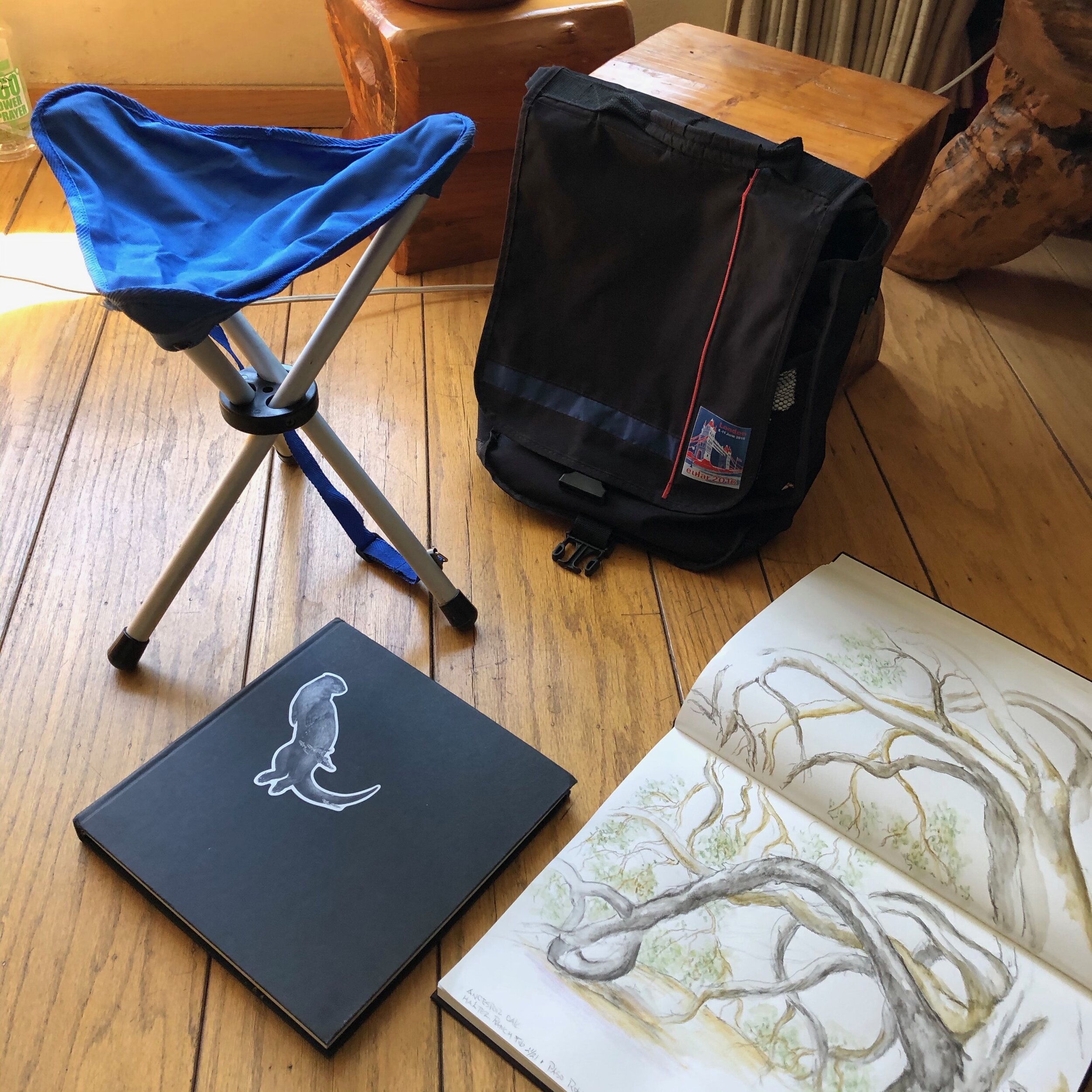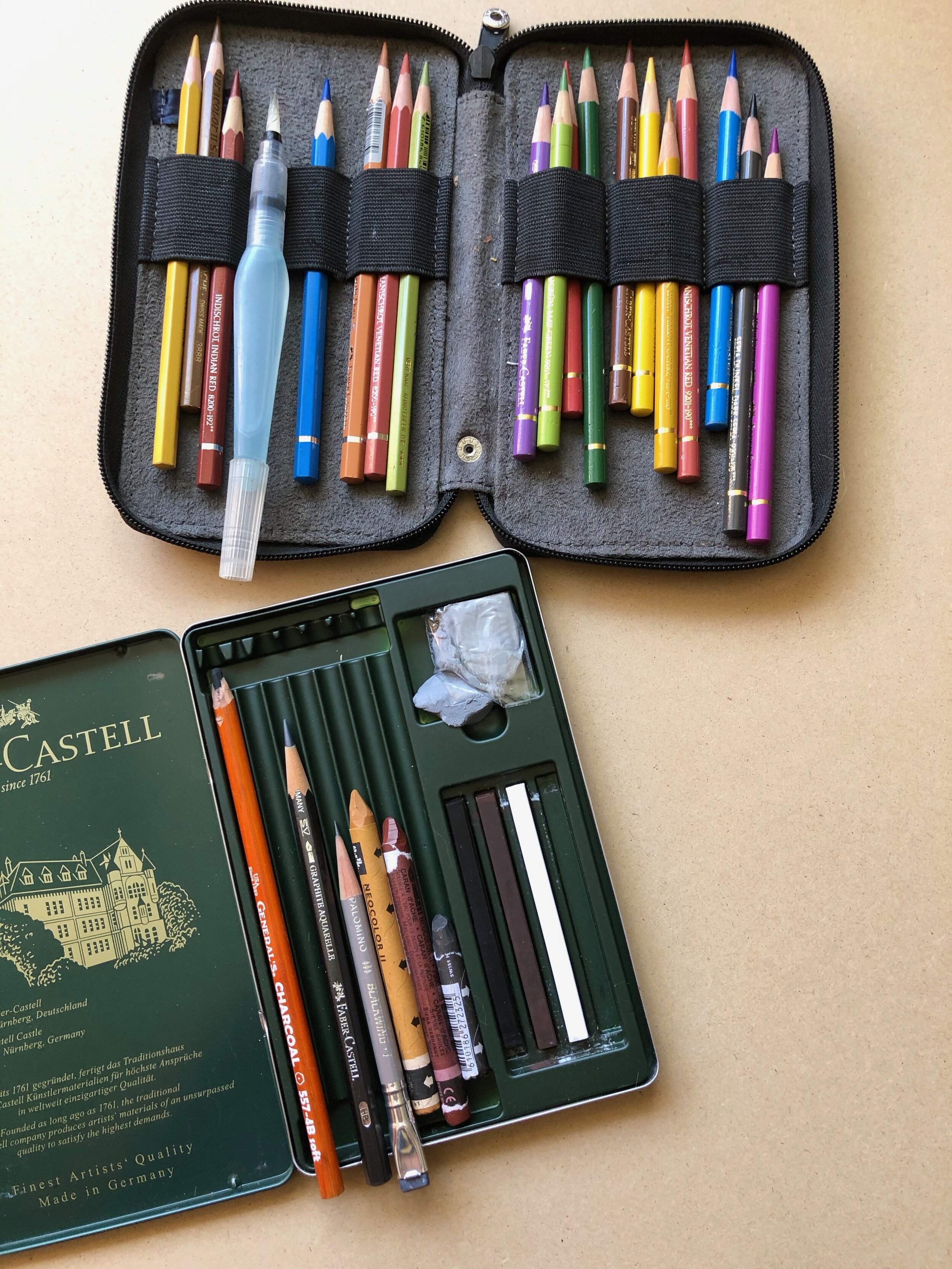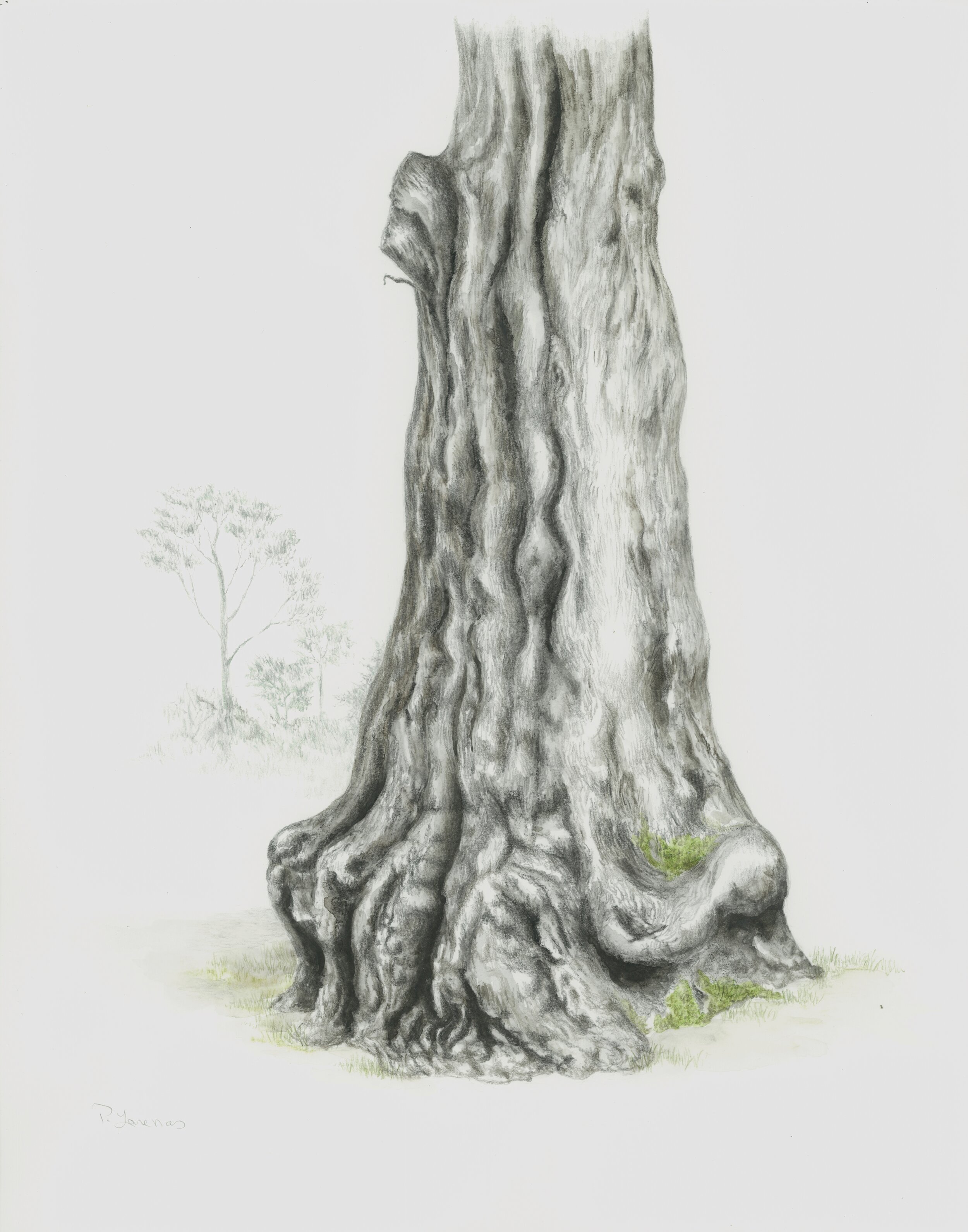How to Draw Trees From Birds Eye View
I've heard that people find trees intimidating to draw and avoid them as a subject. For me, it's not negotiable,I'm drawn to draw them. As the biggest beings on our planet, they are fascinating, endlessly beautiful, and equally as mysterious. It's obvious that I'm inspired by trees, which is the point. Because if your subject doesn't call to your heart or move you in some way, I doubt you'll want to spend the time and effort needed to propel you forward. Developing drawing skills takes practice. And if you're drawing something you love, it will be a fulfilling journey.

A page from one of my sketchbooks
I enjoy the challenge of figuring out and downright wrestling, with the best way to express the overpowering majesty of a particular tree, for what I call my "tree portraits". It's helpful that I live in the San Francisco Bay Area, surrounded by some of the most iconic trees on the planet, including: the Coast Redwood, Coast Live Oak, Valley Oak (and other oaks), Monterey Cypress, California Bay, and charmers like the California Buckeye. In addition we have some spectacular immigrants, such as eucalyptus trees.
Illustrator Alan Lee, who beautifully conjured up the magical forests of Tolkien's Middle Earth, wrote that he's drawn thousands of trees during his long career. At the time I read that I was frustrated at the slow progression of my tree-drawing skills. But his statement reminded me of the effort required to be good at something, so I'll wait until I've drawn at least several hundred to complain about it again!
A big plus about my tree- obsession is that I get to spend time outside in their company. And if I can be in a park or a natural setting, it's time well-spent for a lover of nature. Even street trees in urban areas are interesting to draw and observe, especially the older ones that have some story to tell in the twist and turns of their trunks. I've even drawn trees while sitting on my portable stool in front of someone's house in my neighborhood. The more you observe and spend time with trees, the better you'll come to understand and recall their seasonal patterns of growth, branching characteristics, bark texture, and foliage, which all differ widely among different species. I typically do studies onsite with the intention of working on a finished piece at home, so I take lots of photos.
But sometimes I draw outside just for the pleasure of it!
My Favorite Portable Art Supplies

I use a Mabef Plein Air easel for large drawings, and I've found that charcoal is a great medium for these studies. In the photo above I was on a cliff above a marine reserve overlooking the Pacific Ocean in a spectacular grove of Monterey Cypress trees.

My portable folding stool, backpack, and the sketchbooks of choice for the day.

Right: My favorite drawing tools- colored pencils, including watercolor pencils, water soluble graphite pencil, Neocolor II soluble wax pastels, charcoal pencil, Blackwing pencils
Backpack: My favorite backpack is one that my husband got at a convention, and it's really a computerbag (above). It has a couple of compartments for my sketchbooks and drawing tools, plus my folding stool.
Folding stool: I got this at a camping store. It's very light and I find it comfortable enough.
Sketchbooks: Like many artists I know, I love sketchbooks and I have an embarrassing number of them that I work in simultaneously. The size and type of paper is how I choose which ones to bring with me for specific outings. I love soluble media, so I favor thicker papers, either for use with mixed media or watercolor. I also consider sustainability and I'll choose recycled paper or alternative products made with bamboo or cotton papers. My finished work tends to be on 100% cotton papers, which is also a good choice for archival reasons.
I favor bound sketchbooks because I love the feeling that it's in a book form, and since I love to use graphite, it smears less. Just a personal preference! They are also comfortable to hold in my lap while sitting on my stool drawing (I use clips to keep the pages from flipping over).
Drawing tools: Faber Castell Polychromos colored pencils, Faber Castell Albrecht Durer water color pencils, Faber Castell Aquarelle graphite (soluble), soluble Caran d' Ache Neocolor II wax pastels, Blackwing pencils (their motto: "half the pressure, twice the speed!") they go on silky, and their easers work. And of course, a water brush.
Working in soluble media has become my favorite method out in the field, it's fast and I enjoy the process.
Portable easel: Sometimes it's a great fun to bring along my Mabef Plein Air easel and a masonite drawing board for larger sheets of paper.
My final thoughts about drawing trees is that it requires patience and love. If my tree portraits inspire others to value trees, my hope is that they won't them for granted and will take better care of them.


About the Author
"I have deep gratitude for trees- for millennia they have provided us with the resources to maintain Earth as a livable planet. And we humans reap countless benefits from trees in our daily lives, including the very oxygen we breathe, much of the food we eat, and many of the materials we use. Just as important, they awe and inspire us with their profound beauty and grandeur, and feed our souls. Our fate is linked to theirs."
Patricia is an exhibiting member of the Northern California Society of Botanical Artists. She studied in the Filoli Botanical Art Certificate Program in Woodside, CA, and this led to her current interest in "tree portraits" as a personal project. She received her B.A. degree in Studio Art from San Jose State University. During the 1990's she was an exhibiting ceramic artist and a member of the Mountain View Potters studio.
Patricia is also a horticulturalist and had her own garden design business for the past seven years until the fall of 2020.
She is a Chilean–American.
Find her on Instagam: @plarenas_onpaper
How to Draw Trees From Birds Eye View
Source: https://www.naturejournalingweek.com/blogs/why-i-draw-trees